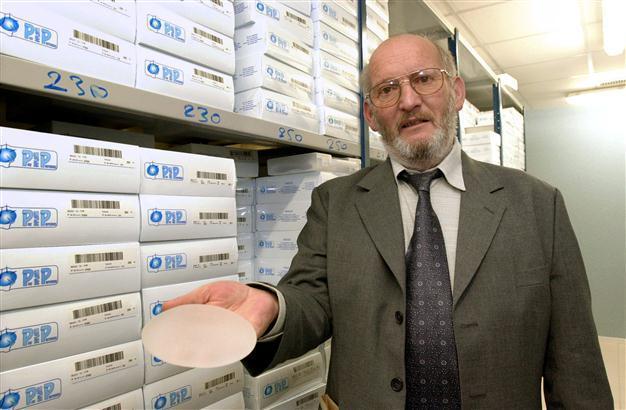Ex-head of French breast implant maker arrested
PARIS - Agence France-Presse

A file picture taken on January 17, 2001 in La Seyne-sur-Mer, southern France, shows the President of Poly Implant Prothese (PIP), Jean-Claude Mas, holding a breast implant. AFP Photo
Police in southeast France on Thursday arrested the former head of a French company at the center of a breast implant scandal affecting tens of thousands of women worldwide, a police official said.Jean-Claude Mas, who ran the now-defunct French company Poly Implant Prothese, was detained at his residence in the Mediterranean coastal town of Six Fours Les Plages shortly before dawn, the official said.
A police search of the residence was under way, said the official, who spoke on condition of anonymity because the case is officially in the hands of judicial investigators.
The implants were pulled from the market in several countries in and beyond Europe amid fears they could rupture and leak silicone into the body.
Authorities worldwide have been scrambling to strike a proper public response to the scandal — notably about who will pay to remove the implants made with cheap, industrial-grade silicone instead of medical-grade gel, or if the implants need to invariably come out.
European governments have taken different positions: German, Czech and French authorities say the implants should be removed, while Britain says there is not enough evidence of health risks to suggest they should be taken out in all cases.
On Wednesday, health authorities in Brazil said the government will fine private health plans that refuse to pay for the removal and replacement of faulty breast implants sold by PIP and a Dutch company.
A lawyer for Mas said in a statement earlier this month that his client, who ran PIP until it was closed in March 2010, would not speak publicly on the case.
The scandal has put pressure on French health authorities for allegedly not doing enough to vet the quality of a product used by untold thousands of women both in France and abroad.
France's Health Safety Agency has said the suspect implants just one type of implants made by PIP — appear to be more rupture-prone than other types. Investigators say PIP sought to save money by using industrial silicone, whose potential health risks are not yet clear.
PIP's website said the company had exported to more than 60 countries and was one of the world's leading implant makers. The silicone-gel implants in question are not sold in the United States.
According to estimates by national authorities, over 42,000 women in Britain received the implants, more than 30,000 in France, 9,000 in Australia and 4,000 in Italy. Nearly 25,000 of the implants were sold in Brazil.
















